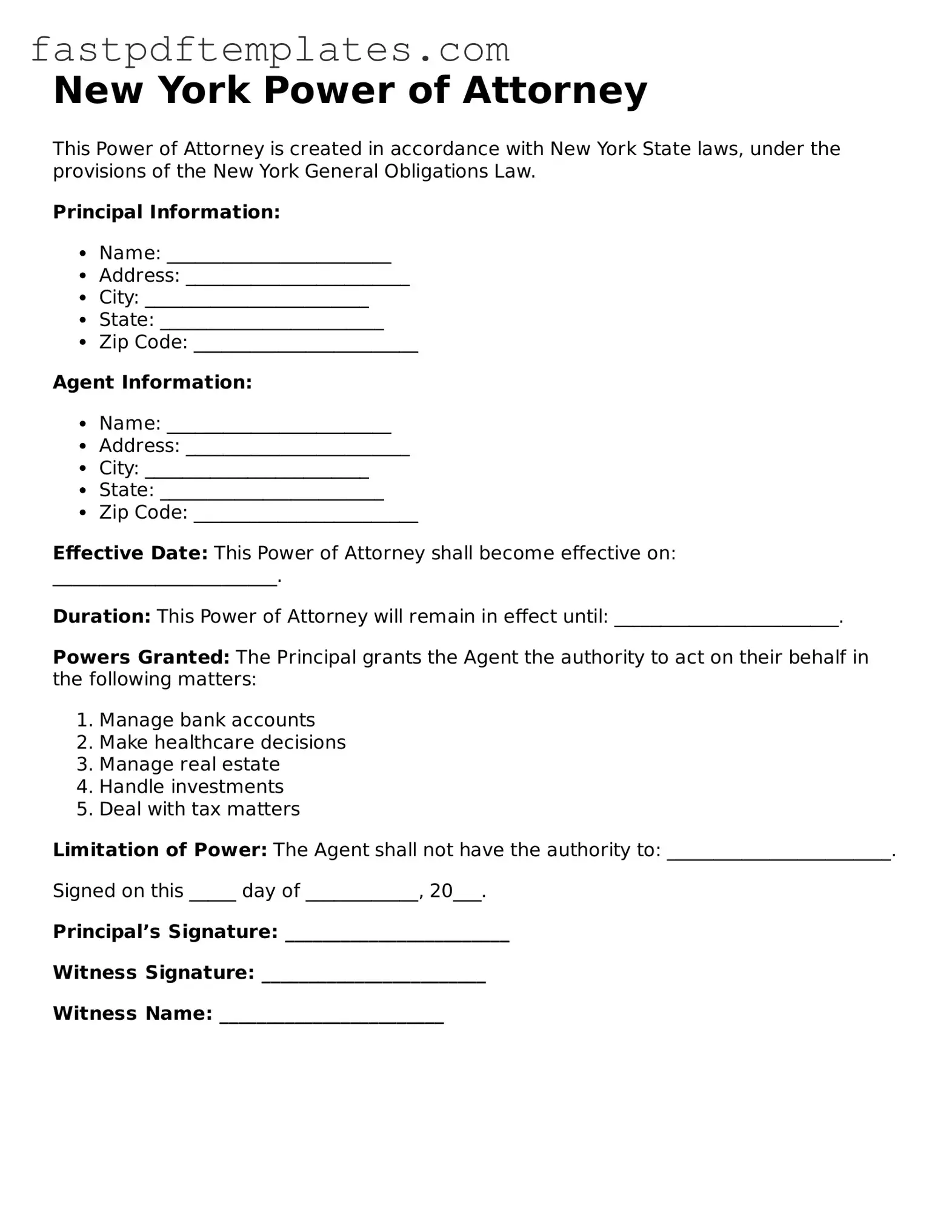Attorney-Approved New York Power of Attorney Document
A Power of Attorney form in New York is a legal document that allows one person to grant another person the authority to make decisions on their behalf. This form can cover various aspects, including financial and medical matters, providing flexibility and peace of mind. Understanding how to properly complete and utilize this form is essential for ensuring your wishes are respected when you are unable to act for yourself.
Access Document

Attorney-Approved New York Power of Attorney Document
Access Document
Your form still needs completion
Complete your Power of Attorney online and download the final PDF.
Access Document
or
Click for PDF Form
